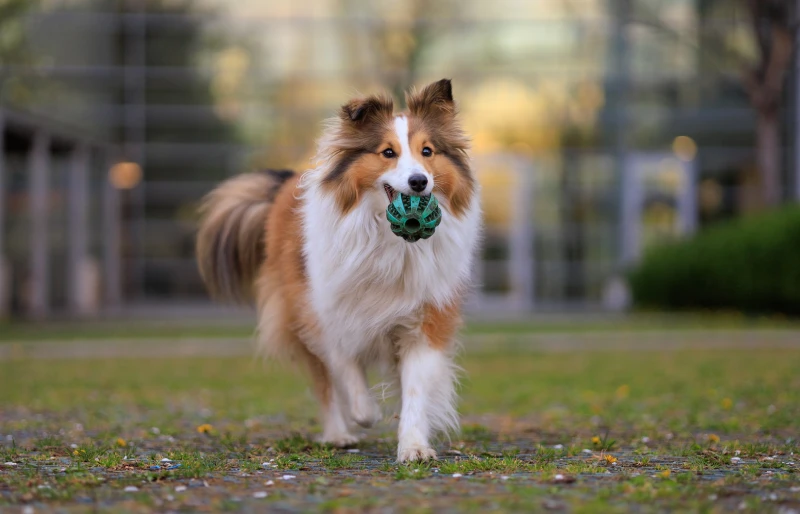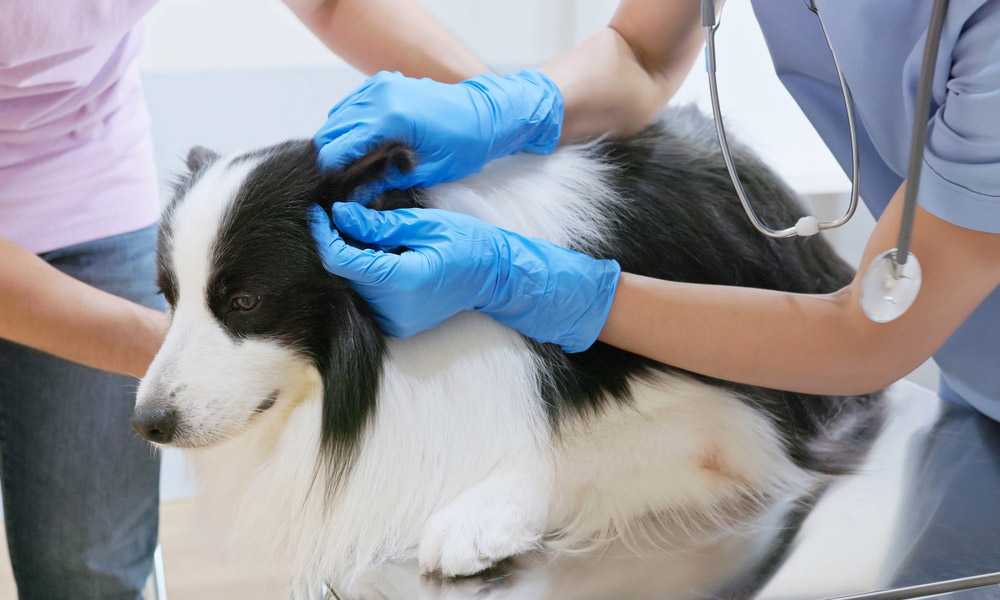Click to Skip Ahead
Shetland Sheepdogs, also known as Shelties, are a popular and intelligent dog breed known for their herding abilities and friendly nature. You can expect a Shetland Sheepdog to live up to 12-15 on average. This guide will provide you with information on the average lifespan of a Sheltie, how to care for them, and what factors can influence their life expectancy.
Sheltie Average Lifespan
The average lifespan of a healthy Sheltie ranges from 12 to 15 years. However, several factors can influence their life expectancy, including genetics, diet, and overall health. With proper care, attention, and a bit of luck, some Shelties have been known to live up to 16 years or more.

Factors That Affect a Sheltie’s Lifespan
1. Genetics
Just like humans, dogs can inherit genes that predispose them to certain health conditions. Responsible breeding practices are crucial in minimizing the risk of genetic health issues that could shorten a Sheltie’s lifespan. When selecting a Sheltie puppy, it’s essential to choose a reputable breeder who conducts health screenings on their breeding dogs.
2. Exercise & Mental Stimulation
Ensuring your Sheltie receives adequate exercise and mental stimulation is crucial for their physical and emotional well-being. Regular physical activity helps maintain a healthy weight, supports joint health, and contributes to cardiovascular fitness. Mental stimulation keeps their minds sharp and prevents boredom-related behavioral issues.

3. Overall Health
Regular veterinary check-ups and preventative healthcare measures, such as vaccinations and parasite prevention, play a significant role in maintaining your Sheltie’s health. Early detection and treatment of any health issues can help prevent complications and extend their life expectancy.
How to Care for Your Sheltie for a Long Lifespan?
To ensure your Sheltie lives a long and healthy life, it’s important to provide proper care that addresses all aspects of their well-being. Here are some key factors to consider:
1. Feeding & Diet
Provide your Sheltie with a high-quality, balanced diet specifically formulated for their size, age, and activity level. This will ensure they receive the appropriate nutrients for optimal health. Avoid overfeeding and giving table scraps, as obesity can lead to various health issues that may shorten their lifespan.
2. Environment
Create a safe, clean, and comfortable living environment for your Sheltie. They should have access to a secure, fenced yard or designated exercise area where they can run and play. Regular exercise is crucial for maintaining their physical health, mental stimulation, and preventing weight gain. Minimizing exposure to environmental hazards, such as toxic plants or chemicals, and ensuring your dog has a comfortable living space can have a positive impact on their lifespan.

3. Grooming
Regular grooming is essential for keeping your Sheltie’s double coat healthy and free from mats. Brush their coat at least once a week to remove loose hair and prevent tangles. Additionally, trim their nails and brush their teeth regularly to maintain overall hygiene.
4. Healthcare
Schedule regular veterinary check-ups to monitor your Sheltie’s health and ensure they receive necessary vaccinations and preventative care, such as flea, tick, and heartworm prevention. Promptly address any signs of illness or discomfort by consulting with a veterinarian.

5. Socialization & Training
Begin socialization and obedience training early in your Sheltie’s life to help them develop into well-behaved, confident dogs. This will also strengthen the bond between you and your pet, contributing to their overall happiness and well-being.
6. Mental stimulation
Shelties are intelligent dogs that require mental stimulation to prevent boredom and related behavioral issues. Provide them with interactive toys, puzzles, and engage in regular training sessions to keep their minds sharp.

7. Love & Companionship
Shelties thrive on human interaction and affection. Spend quality time with your dog, engaging in activities they enjoy, such as walks, playtime, or cuddling. This will ensure your Sheltie feels loved and secure, contributing to their overall happiness and longevity.
The 4 Life Stages of a Sheltie
Shelties go through various life stages, each with its own unique characteristics and care requirements. It’s important to understand these stages to provide the best care for your Sheltie as they age.
1. Puppyhood (0–12 months)

During this stage, Sheltie puppies grow rapidly and require proper nutrition for healthy development. Socialization and basic obedience training should begin early to ensure they develop into well-behaved and confident dogs. Regular veterinary check-ups and vaccinations are essential during this stage to protect them from common puppy illnesses.
2. Adolescence (1–3 years)

As your Sheltie transitions from puppyhood to adolescence, their energy levels and curiosity may increase. Continue obedience training and socialization to reinforce good behavior and strengthen your bond. Monitor their weight closely, as this is a time when they may be prone to obesity due to their high energy levels.
3. Adulthood (3–8 years)

During adulthood, Shelties reach their full physical and mental maturity. They should have established routines for exercise and healthcare, as well as regular grooming sessions. Regular veterinary check-ups are still crucial to monitor their overall health and detect any potential issues early on.
4. Senior (8 years & older)

As your Sheltie enters their senior years, you may notice changes in their energy levels, mobility, and overall health. It’s important to adjust their diet and exercise routine to accommodate their changing needs. Senior dogs may require more frequent veterinary check-ups to manage age-related health issues such as arthritis, dental problems, and vision or hearing loss.
How to Tell Your Sheltie’s Age
Determining your Sheltie’s age can be difficult if you don’t know their birthdate. However, there are several factors that can provide some indication of their age:
- Teeth condition: Younger dogs typically have bright white teeth, while older dogs may have yellowing or signs of wear. By the age of 3, most dogs will have some tartar buildup on their teeth.
- Coat quality: A younger Sheltie’s coat is usually soft and shiny, while an older dog’s coat may appear duller and coarser. Senior dogs may also develop gray hairs around their muzzle and eyes.
- Overall health: As dogs age, they may develop age-related health issues such as arthritis, decreased mobility, or vision and hearing loss. Observing your Sheltie’s overall health and behavior can provide clues about their age.
- Eye clarity: Younger dogs generally have clear, bright eyes. Older dogs may develop a cloudiness in their eyes, known as nuclear sclerosis, which is a normal aging change.
If you’re still unsure about your Sheltie’s age, consult with a veterinarian who can examine your dog and provide a more accurate estimate based on their physical condition and health.
Summary
Taking proper care of your Sheltie is crucial to guarantee their longevity, happiness, and good health. By offering a well-balanced diet, consistent exercise, grooming, and medical attention, you can help your Sheltie live as long as possible. Here’s to many more years together!
Featured Image Credit: Lisjatina, Shutterstock













